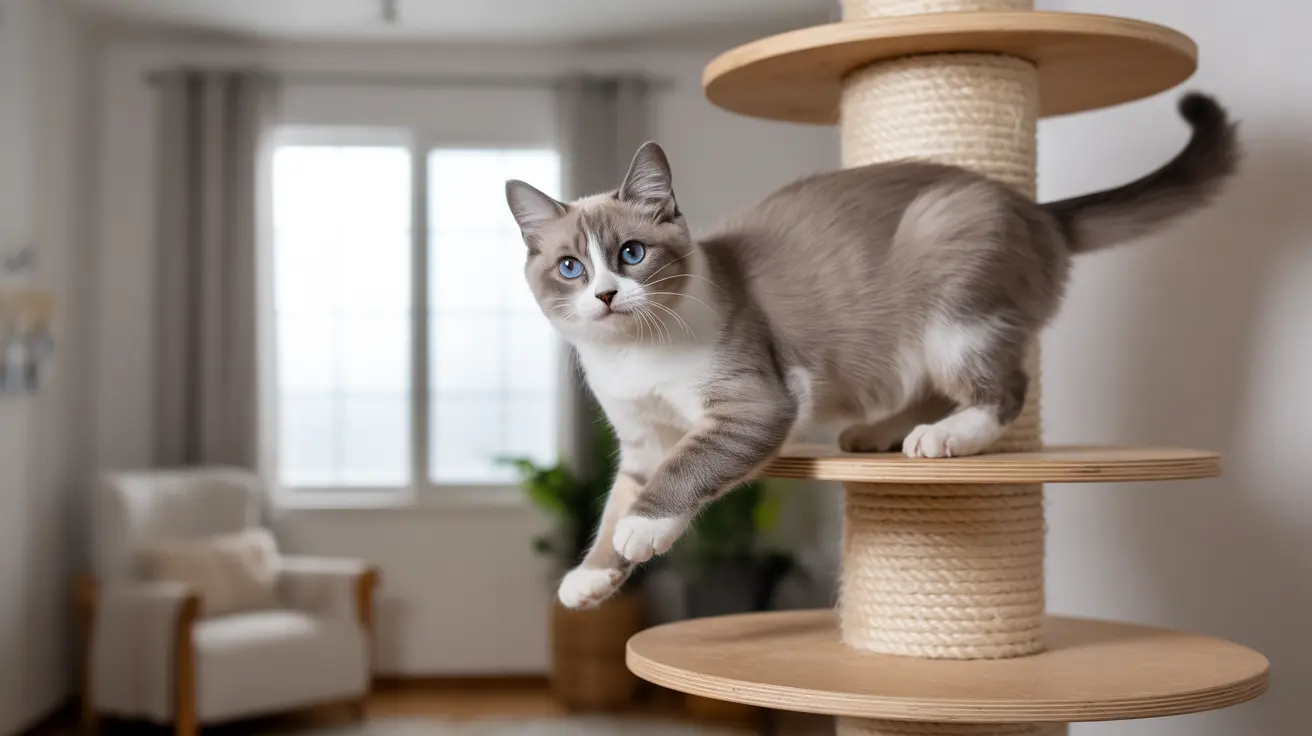Considering adding a Snowshoe cat to your family? Understanding their lifespan and care requirements is essential for providing the best possible life for these striking felines. Known for their distinctive markings and friendly personalities, Snowshoe cats typically enjoy a lengthy life expectancy of 14 to 20 years when properly cared for.
In this comprehensive guide, we'll explore the factors that influence a Snowshoe cat's longevity and provide expert insights on helping your feline friend live a long, healthy life.
Understanding Snowshoe Cat Life Stages
Snowshoe cats progress through several distinct life stages, each requiring specific care and attention:
Kitten Phase (0-12 months)
During their first year, Snowshoe kittens undergo remarkable transformations. Born pure white, their signature color points and markings develop within the first few weeks. This period is crucial for socialization, vaccinations, and establishing healthy eating habits.
Young Adult Years (1-6 years)
These are typically the most active years of a Snowshoe's life. They maintain high energy levels and require regular exercise and mental stimulation to stay healthy and engaged.
Mature Adult Period (7-10 years)
As they enter middle age, Snowshoes may begin showing signs of slowing down, though many maintain their playful nature. Regular health screenings become increasingly important during this stage.
Key Factors Affecting Snowshoe Cat Lifespan
Genetics and Heritage
Snowshoe cats benefit from the genetic diversity of their Siamese and American Shorthair ancestors, which contributes to their generally robust health. However, this mixed heritage can also make them susceptible to certain inherited conditions.
Diet and Nutrition
Proper nutrition plays a crucial role in extending a Snowshoe's lifespan. These cats require:
- High-quality protein-rich food
- Age-appropriate portions
- Fresh water available at all times
- Limited treats to prevent obesity
Environmental Factors
Indoor living significantly extends a Snowshoe's life expectancy by protecting them from:
- Traffic accidents
- Predators
- Exposure to diseases
- Extreme weather conditions
Health Considerations and Preventive Care
Regular veterinary care is essential for maintaining your Snowshoe cat's health and longevity. Key aspects include:
Regular Health Screenings
- Annual wellness examinations
- Dental checkups and cleaning
- Vaccination updates
- Parasite prevention
Common Health Concerns
While generally healthy, Snowshoe cats may face certain health challenges:
- Dental disease
- Weight management issues
- Inherited conditions from their Siamese ancestry
Lifestyle and Environmental Enrichment
Snowshoe cats thrive in enriched environments that provide:
- Multiple climbing surfaces
- Interactive toys
- Scratching posts
- Comfortable resting areas
- Regular playtime with their human family
Frequently Asked Questions
How long do Snowshoe cats typically live, and what factors influence their lifespan?
Snowshoe cats typically live 14-20 years. Their lifespan is influenced by genetics, diet, exercise, preventive healthcare, and living environment. Indoor cats generally live longer than outdoor cats.
What diet and nutrition should I provide to help my Snowshoe cat live a long, healthy life?
Provide high-quality, age-appropriate cat food rich in animal protein. Maintain proper portion control, ensure fresh water is always available, and avoid human food. Consult your veterinarian for specific dietary recommendations based on your cat's age and health status.
Are Snowshoe cats prone to any specific health issues that owners should watch for?
While generally healthy, Snowshoe cats may be prone to dental disease, obesity, and some genetic conditions inherited from their Siamese ancestry. Regular veterinary check-ups can help detect and address these issues early.
How can I best care for a Snowshoe cat to maximize their lifespan indoors?
Provide regular veterinary care, maintain a healthy diet, ensure plenty of exercise through play, and create an enriched environment with climbing opportunities and mental stimulation. Keep them indoor-only to protect from outdoor hazards.
What are the distinctive personality traits of Snowshoe cats, and how do these affect their care needs?
Snowshoe cats are social, intelligent, and active. They require regular interaction, mental stimulation, and playtime. Their affectionate nature means they do best with families who can provide consistent attention and engagement.
Conclusion
With proper care, nutrition, and regular veterinary attention, Snowshoe cats can enjoy long, healthy lives well into their late teens or early twenties. Their engaging personalities and adaptable nature make them wonderful companions for dedicated pet owners willing to invest in their health and happiness throughout their lifetime.






